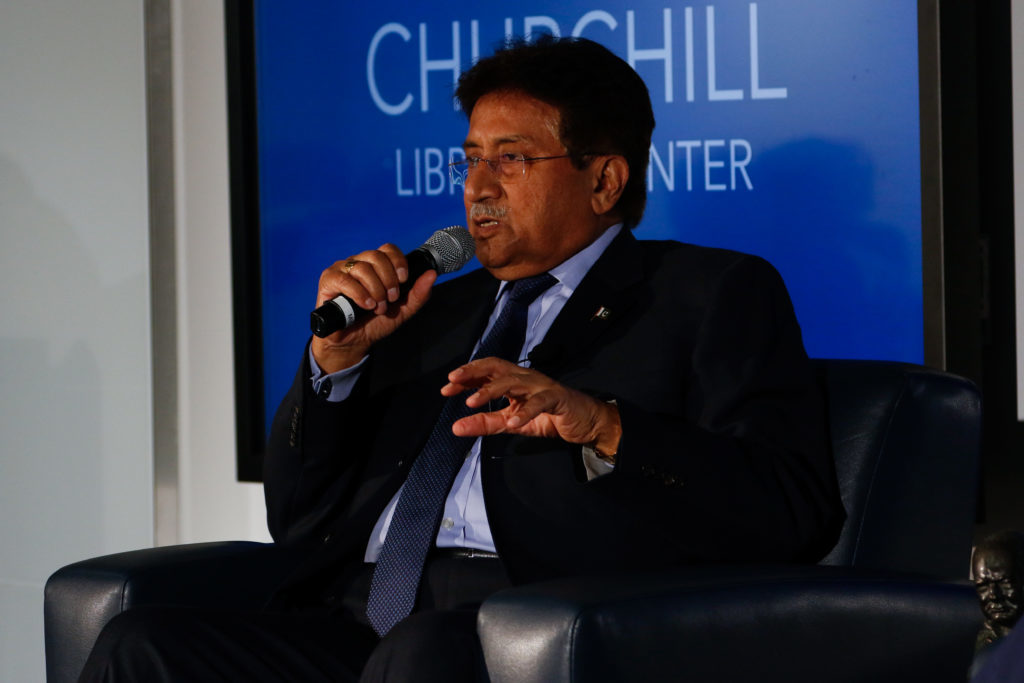Updated: April 14, 2017 at 10:46 a.m.
The former president of Pakistan spoke about his experiences as a leader and his views on foreign policy in Gelman Library Wednesday night.
General Pervez Musharraf discussed the bitter relationship between India and Pakistan and the fight against terrorism in the region. About 110 people attended the event, hosted by the National Churchill Library and Center, on the first floor of Gelman.
Musharraf came to power following a military coup and is best known for his controversial attempts to liberalize Pakistan. He has since left Pakistan after being threatened with jail time over his alleged role in political assassinations.
Michael Bishop, the director of the Churchill Library, fielded questions before opening up the discussion to the audience.
Here are some highlights from the event:
1. Indian and Pakistani conflict
Musharraf was candid about his view of the relationship between India and Pakistan, he said that the two countries have long been adversaries.
“The current status of Pakistani-Indian relations is most terrible,” he said. “India is now saying very openly that they want to economically strangle Pakistan, destabilize us internally and isolate us internationally. In this environment, there is no way to achieve peace.”
Musharraf said more communication is necessary to improve relations, especially because both countries have nuclear weapons.
“I always believe in talking honestly,” he said. “As far as Pakistan is concerned, we are nuclear because we have an existential threat. Therefore, we have a right to protect ourselves.”
2. Balancing leadership and diplomacy
Musharraf emphasized certain traits – like honesty and bold action – in leaders trying to achieve a productive relationship between countries.
“There must be sincerity between leaders to resolve disputes and bring about peace,” he said. “There must also be flexibility. I believe that we have to be flexible enough to accept each other’s points of views in case they are better than our own. Only then can we move forward.”
3. Future of democracy
Musharraf discussed the prospects for democracy in the Middle East given his own experiences as an autocratic leader in the region. He said the current state of the Middle East would call for a “tailored” form of democracy that would better match the needs of the region.
“If we can tailor our democracy requirements and also impose checks and balances, then yes, democracy could work in Pakistan,” he said. “However, this has not yet happened in the Middle East, so autocratic leaders have always succeeded more than democratic elections in Pakistan.”
Musharraf said many people blame Pakistan for harboring terrorist groups, but that the country is doing its best to combat them. Former Al Qaeda leader Osama Bin Laden was hiding out in Pakistan before he was killed by U.S. troops in 2011.
“We are the victims of circumstances in the region and we are fighting against terrorism to the best of our ability,” he said. “People must understand the sacrifices that we’ve given fighting terrorism, and what we continue to sacrifice.”





